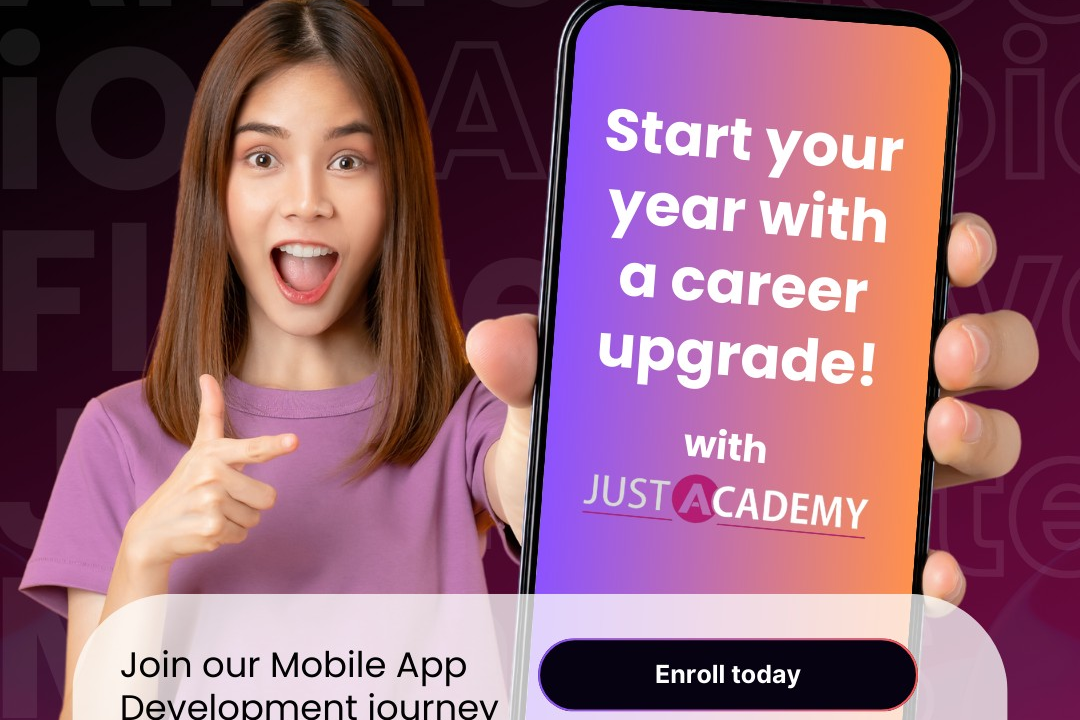Android Studio Tutorials
Essential Android Studio Tutorials for Developers
Android Studio Tutorials
Android Studio tutorials are instructional resources designed to help developers learn how to build applications for the Android platform using Android Studio, which is the official integrated development environment (IDE) for Android. These tutorials typically cover a wide range of topics, including the fundamentals of Android app development, user interface design, working with APIs, managing databases, handling user input, and debugging applications. They are often presented in various formats, such as step-by-step guides, video lessons, and sample projects, catering to different learning styles. Many tutorials also emphasize best practices, performance optimization, and the use of modern development tools and libraries, making them suitable for beginners as well as more experienced developers looking to enhance their skills.
To Download Our Brochure: https://www.justacademy.co/download-brochure-for-free
Message us for more information: +91 9987184296
1 - Introduction to Android Development: Overview of what Android development is, its importance, and the various applications of Android apps in the real world.
2) Setting Up Android Studio: Detailed steps on how to download, install, and configure Android Studio to create a comfortable development environment.
3) Understanding the IDE: Familiarization with the Android Studio interface, including code editor, design tools, and project structures to help students navigate the IDE easily.
4) Creating Your First Project: Guided steps to create a simple “Hello World” app, introducing students to the project scaffolding and basic app components.
5) Java/Kotlin Basics: Introduction to Java or Kotlin programming languages, focusing on syntax, data types, and basic programming concepts needed for Android.
6) Layout Design with XML: Exploring XML layout files to design user interfaces, including different layout types (LinearLayout, RelativeLayout, etc.) and best practices.
7) Understanding Activities and Intents: Explanation of Android's activity lifecycle, how to create multiple screens, and how to navigate between them using intents.
8) Working with UI Components: Overview of various UI components (Buttons, TextViews, ImageViews) and how to implement them in the user interface.
9) Data Persistence: Introduction to storing data locally using SharedPreferences, SQLite databases, and other persistence methods.
10) Networking and APIs: Basics of networking in Android, how to make HTTP requests, and parse JSON responses to connect with web services and APIs.
11) Working with Fragments: Understanding fragments for building dynamic UI components and how they interact with activities and back stack management.
12) Responsive Design: Teaching students how to create apps that work on different screen sizes, densities, and orientations using resource qualifiers and constraint layouts.
13) Debugging and Testing: Introduction to debugging in Android Studio, using Logcat, breakpoints, and unit testing best practices for ensuring app stability.
14) Using Libraries and SDKs: The importance of third party libraries, how to include them in projects, and common libraries used in Android development (e.g., Retrofit, Picasso).
15) Publishing Apps to the Play Store: Guide on the app publishing process, from preparing the app for release, to signing it, and finally uploading to the Google Play Store.
16) Version Control with Git: Introduction to version control systems like Git, how to use Git with GitHub or Bitbucket, and basic commands for managing code changes.
17) Building a Complete Project: Engage students in a capstone project where they apply their skills to develop a complete Android application from scratch, showcasing what they've learned.
18) Best Practices and Resources: Teach students best practices in Android development, including coding standards, performance optimization, and where to find continued learning resources.
19) Future Trends and Advanced Topics: Brief discussion on the future of Android development, including Jetpack Compose, Android Architecture Components, and the growing importance of cross platform development tools.
This comprehensive curriculum would provide students with a solid foundation in Android development, preparing them for entry level positions or further study in mobile app development.
Browse our course links : https://www.justacademy.co/all-courses
To Join our FREE DEMO Session: Click Here
Contact Us for more info:
free digital marketing courses uk
Best iOS course
looking best java training institute delhi
Core Java Course Duration
pmp boot camps











